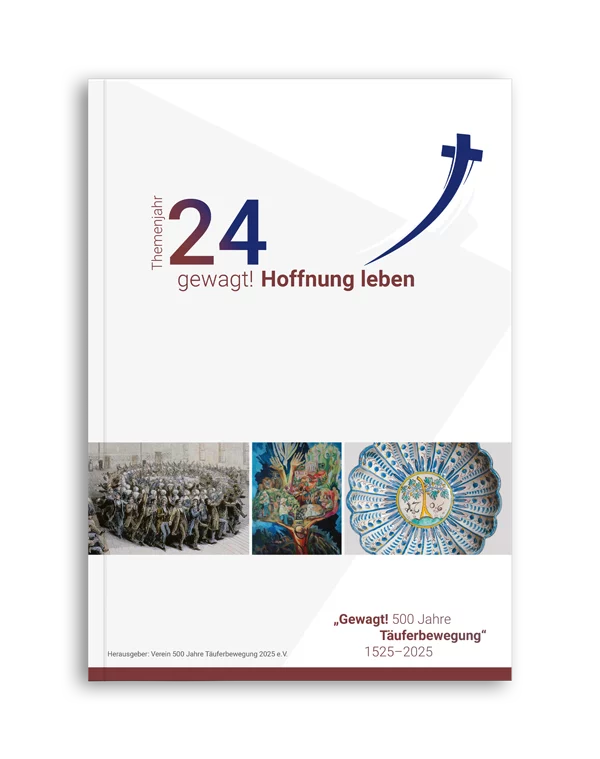
Living hopefully means, in the light of God’s future, not to resign oneself to current existence but to discern the nature of power structures and their dependencies, and to devote all of one’s energies toward a just society of people, infused with peace and love.
Like so many Christians of their time, the Anabaptists in the 16th Century believed in an imminent end of the world. They reckoned with the breaking in of the kingdom of God in the foreseeable future. Hence apocalyptic visions evolved in a few Anabaptist congregations, whereupon the chosen, through baptism by faith, were to be assimilated into the apocalyptic flock. Above all, the peasants and the simple populace were held to be the true instruments of God, the worldly powers having discredited themselves through exploitation, constant conflict and greed. The benchmarks of the kingdom of God should be implemented and achieved within Anabaptist congregations. This they indicated by consciously separating themselves from the world through their disciplined lives, and by striving for the purity and sanctity of their fellowship.
In the Anabaptist Kingdom of Münster, 1534/35, the citizens of the city organized the “New Jerusalem” as a holy place and redemptive city of God. This “utopia,” however led to radical divisions between believers and unbelievers, to the expulsion and persecution of dissidents, as well as to violent defensive measures.
In the Theme-Year 2024 arises the question regarding the enduring potential of Anabaptist hopes and perspectives. Where do congregations find themselves today in the perennial interplay between tradition and renewal? Are we prepared to challenge our own heart-felt positions? Is it enough for us to reserve hope in God’s future for our own personal faith alone? Cannot the biblical images of hope inspire much more towards a modified way of life, and a new search for a just society of all people—in small and large matters? The biblical benchmarks of the kingdom of God are not only for inner reflection; they can overcome long-standing social, economic and even sexual barriers. How can Christian hope be implemented in everyday life and in churches, without harming others and excluding those with different beliefs? Utopias can fail, but even then, they leave behind as an exhortation the dream of a fraternal world, and a new quality of human society.
